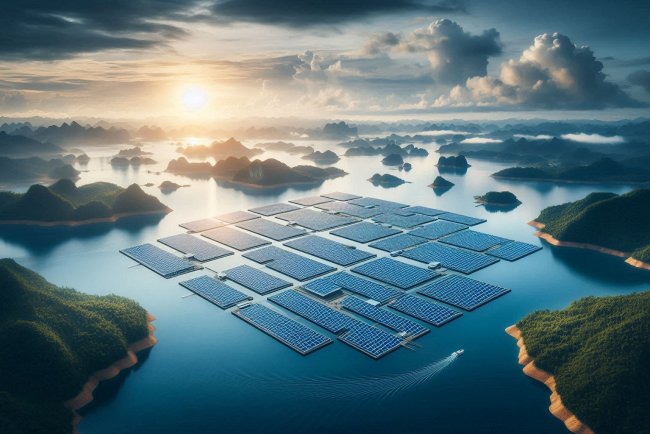Advances in Thermal Energy Storage
Discover the latest research and innovations in thermal energy storage technologies to advance sustainable energy solutions.

Advances in Thermal Energy Storage
Thermal energy storage (TES) plays a crucial role in enhancing the efficiency and reliability of various energy systems. It allows for the storage of excess thermal energy generated during off-peak hours for later use during peak demand periods. Recent advances in TES technologies have focused on improving energy storage capacities, reducing costs, and increasing overall system efficiency.
Types of Thermal Energy Storage Systems
There are several types of thermal energy storage systems, each with its unique advantages and applications:
- Sensible Heat Storage: This type of TES involves storing energy by heating or cooling a material without undergoing a phase change. Common materials used for sensible heat storage include water, rocks, and molten salts.
- Latent Heat Storage: In latent heat storage systems, energy is stored or released by changing the phase of a material. Phase change materials (PCMs) such as paraffin wax or salt hydrates are commonly used in this type of TES.
- Thermochemical Storage: Thermochemical storage systems store energy through reversible chemical reactions. This type of TES offers high energy storage densities and is suitable for long-duration energy storage applications.
Advancements in Thermal Energy Storage
Recent advancements in thermal energy storage have focused on improving the performance, efficiency, and scalability of TES systems. Some of the key developments in this field include:
Enhanced Materials
Researchers have been developing new materials with improved thermal properties and stability for use in thermal energy storage systems. These materials can store and release energy more efficiently, leading to higher overall system performance.
High-Temperature Storage
Advances in high-temperature TES systems have enabled the storage of energy at temperatures exceeding 1000°C. This allows for the integration of TES with concentrated solar power plants and other high-temperature industrial processes.
Thermal Storage for Buildings
Thermal energy storage systems for buildings have gained popularity due to their ability to reduce energy consumption and peak demand. These systems use TES to store excess heat or cold generated by HVAC systems for later use, improving overall energy efficiency.
Hybrid Energy Storage Systems
Hybrid energy storage systems combine different TES technologies to optimize energy storage capacity and efficiency. By integrating sensible heat storage with latent heat or thermochemical storage, these systems can provide flexible and reliable energy storage solutions.
Smart Grid Integration
Advancements in smart grid technologies have enabled the seamless integration of thermal energy storage systems with electricity grids. This allows for better demand management, grid stability, and increased renewable energy integration.
Applications of Thermal Energy Storage
Thermal energy storage systems have a wide range of applications across various industries and sectors, including:
- Renewable Energy Integration: TES systems play a crucial role in integrating intermittent renewable energy sources such as solar and wind power into the grid by providing energy storage solutions for periods of low generation.
- Industrial Processes: TES systems are used in industrial processes to optimize energy consumption, reduce peak demand charges, and improve overall process efficiency.
- Transportation: Thermal energy storage systems can be used in electric vehicles to extend driving range and improve battery performance.
- Agriculture: TES systems are utilized in agriculture for crop drying, greenhouse heating, and climate control applications.
Future Outlook
The future of thermal energy storage looks promising, with ongoing research and development efforts focused on improving system efficiency, reducing costs, and expanding the range of applications. Key areas of future advancement include:
Advanced Materials
Ongoing research into advanced materials such as nanomaterials, metal hydrides, and carbon-based materials is expected to lead to the development of high-performance thermal energy storage systems with increased energy density and thermal conductivity.
Long-Duration Storage
The development of long-duration thermal energy storage systems capable of storing energy for extended periods will be crucial for meeting the growing demand for reliable and flexible energy storage solutions.
What's Your Reaction?
















